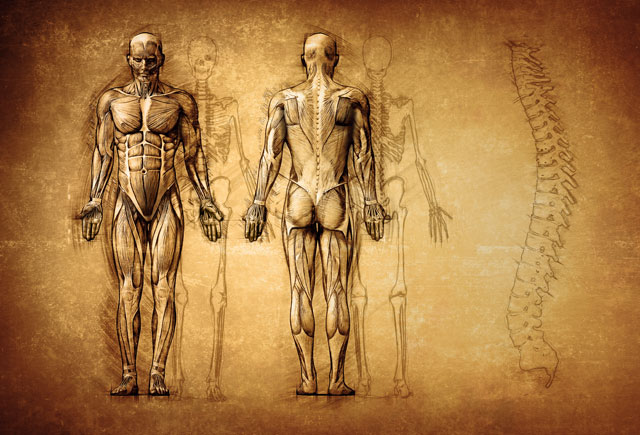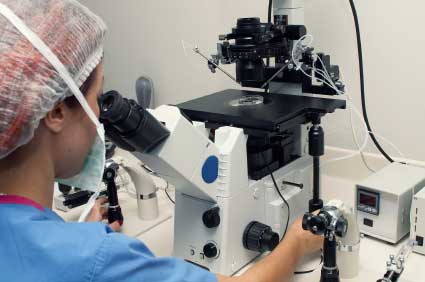In this article we will look at Patient Advocates, Collections, Medical Application Support, and Administrative Consultants as healthcare career options. The objective is to present information for awareness of career opportunities in the healthcare field and some of the qualifications needed to enter these fields.
About 37 percent of the possible healthcare positions are in the offices of physicians, either in single practices or in groups. Even physicians and surgeons are increasingly accepting salaried positions in large group medical practices, clinics, or integrated healthcare systems. The medical profession is growing at a rapid rate and the career opportunities are increasing as well.
Not all of the related career options are in a medical office, however. Many peripheral occupations related to (but not in) medical facilities are in the technology area. Computers have become indispensable to the healthcare industry and medical software applications are in constant demand. Many occupations related to the healthcare office are now being done remotely from home offices or online companies. Therefore, proficiency in computer technology is a requisite for healthcare administrative positions.
In a broader view it must be noted that occupational opportunities exist in dental, chiropractic, and other types of medically related fields.
OVERVIEW
The image of physicians, nurses, and general hospital personnel as the only players within the medical profession is only a memory in today's highly technological world. The variety of healthcare related careers has mushroomed in the past two decades. The result of this sharp increase in providing healthcare has meant a sharp rise in both the types of qualified professionals needed and the number of people required to fill those positions. Educational institutions from Commercial Colleges, to Community Colleges, to Universities have kept up with the new demands with courses and even degrees or associate degrees in medical specialized fields. There are many different opportunities for building a solid career within the medical profession and the support businesses closely related to healthcare delivery products and services.
Patient Advocates
Qualifications of Patient Advocates
In most cases, the Patient Advocate will be a Registered Nurse who works directly with the patient rather than with the institution. The Patient Advocate needs to be someone who understands the medical terms for illnesses, the various treatments available, the possible outcomes of those treatments, and the choices of doctors and treatment plans.
Duties and Responsibilities of Patient Advocates
The PA focuses entirely on the patient and gives objective advice regarding treatment, costs, options, and information to patients who might otherwise not understand her or his medical condition. Because of the possibility of human error within the system, Patient Advocates can be alert to prevent those mistakes from happening, or correcting them if they have already occurred. Another important feature of the Patient Advocate is being able to find alternative medical facilities which may decrease the costs for the patient or provide better services.
Compensation
Registered Nurses who work as Patient Advocates will not make the salaries of hospital nurses, however, the stress level of the job is much less. RNs will be at the top of the pay scale for Patient Advocates.
Collections
Medical Collections has become a peripheral business to the healthcare providers. The job requires financial reporting and collecting of medical payments owed to the healthcare system.
Qualifications
The medical collector will have education and training in the legalities of collecting outstanding medical debts in compliance with the Healthcare Insurance Portability and Accountability Act (HIPAA) and the Fair Debt Collection Practices Act (FDCPA).
Duties and Responsibilities
Medical Collectors are responsible for reporting unpaid balances to the major credit bureaus, initiating litigation when necessary, and making every effort to collect outstanding medical debts.
Compensation
Salaries for medical debt collectors vary from location to location and on the size of the medical collection agency.
Medical Application Support
Medical Application Support Services are about information systems used by the healthcare sector. This has become a highly specialized field within the broader scope of computer technology. Careers in this area have sprung up over the past two decades and are expected to continue increasing in demand.
Qualifications
People who work in this area are first of all highly qualified in the area of computer technology. In addition to that expertise, the Medical Application Support technician must be familiar with medical codes, forms, and prices related to the healthcare profession.
Duties and Responsibilities
The Medical Application Support technician works with healthcare facilities to install, maintain, and configure medical applications. This work requires not only advance computer skills but also a fundamental knowledge of health related nomenclature. An MAS technician will be on call to visit medical offices whenever problems arise that cannot be handled over the internet or by instructions over the phone.
Compensation
Salaries for Medical Application Support technicians are commensurate with IT technician salaries in general.
Admin Consultants
Administration Consultants provide support services to healthcare administrative personnel by assisting in coordinating services, equipment, and systems within the office. These consultants work for companies that are providers for the medical office.
Qualifications
Qualifications for Administration Consultant varies according to the type of support services to be rendered. The Administration Consultant will hold at least a bachelor's degree in business or medical administration. As with other support services, the Administration Consultant must have a working knowledge of medical terminology and of the integration of functions within the office.
Duties and Responsibilities
The Administration consultant is basically a trouble shooter to prescribe procedures that simplify and organize the work of Medical Administration offices. This may include offering guidelines for the collective efforts of the healthcare administrative staff, consultations with the medical administration supervisor, offering assistance in finding alternative procedures or policies, improving the flow of medical correspondence, and occasionally serving as a substitute in the absence of the regular supervisor.
Compensation
Again, compensation will vary depending upon the organization that hires the Administration Consultant. Salaries are usually commensurate with those of medical secretaries or medical administrators.
SUMMARY
Career opportunities continue to expand as the healthcare systems grow at a substantial rate. The field is broad and it takes time to examine all possibilities before making career choices or career changes. Computer technology has become such an integral part of the medical professions that any course of study undertaken in the medical field must include useful computer knowledge as well. Other requirements include good communication skills in both written and oral English. Medical administration positions enjoy working in pleasant surroundings with highly professional people.
General dentistry, dental surgery, and orthodontics are second only in size to the physician-hospital healthcare sectors. It is estimated that one out of every five healthcare establishments is a dental office.
Dental Office Secretary
The Dental Office Secretary's position corresponds to the Medical Secretary in a physician's office, hospital, or other healthcare entity. Except in large multi-dentist practices, she or he may also double as biller, coder, and insurance claims technician. In smaller offices there may be two secretaries to divide up the work. As dental insurance becomes more prevalent, the handling of claims is more and more a part of the dental office administration.
Dentist's Assistant
This position is one step under an actual dentist where the Dentist's Assistant works directly on the patient under the supervision of the Dentist. The Dentist's Assistant is qualified to perform teeth cleaning and other minor dental procedures. In many cases the Dentist's Assistant is in the process of obtaining a degree in dentistry.
Dental Assistant
Not to be confused with the Dentist's Assistant, the Dental Assistant is much the same position in the dental office as the Medical Assistant is in the physician's office. He or she will get the patient ready for the dental exam, take the patient's x-rays (if qualified), maintain the order and cleanliness in the treatment rooms, sterilize and set up the equipment for dental procedures.
Compensation
Salaries in dental offices are generally commensurate with those of similar positions in physician's offices. Except in very large dental clinics, chances for advancement are limited.
HOME HEALTH CARE SERVICES
In recent years there has been a growing trend in Home Healthcare Services. Skilled nurses go into the homes of those who prefer to be treated in their own surroundings. This is especially true of the elderly. More and more in-home medical technologies have made this a viable and cost effective method of delivering healthcare. Compensation will be on a par with nurses in clinical settings and allow for more freedom of time management. However, the Home Healthcare nurse may be required to be "on call" for in-home medical emergencies.
OUTPATIENT CARE CENTERS
Medical secretaries, medical technicians, and therapists are among the career positions available in these centers which are usually specialized in such areas a kidney dialysis, health maintenance, outpatient mental health services, and substance abuse centers. Compensation varies according to the size and funding of the particular outpatient facility. Like all salaries in the medical field, however, they are usually at or above the national average. Educational requirements will vary from high school diploma with secretarial and computer training to advanced degrees for therapists and mental health counselors.
AMBULATORY HEALTH CARE SERVICES
There are any number of these services which serve as adjuncts to the primary healthcare industry. A pilot's license, of course, is a requirement for medical helicopter transport services. Blood and organ banks require employees who have medical training. Pacemaker monitoring services need degreed personnel to maintain this service for people who have implanted pacemakers. Ambulance and EMS personnel provide ground transportation and emergency medical procedures by a trained and certified paramedic.
MEDICAL AND DIAGNOSTIC LABORATORIES
Although these facilities provide the smallest number of jobs in the healthcare professions, they are worthy of consideration because of the skilled nature of their work. The technicians need to hold degrees with a concentration on medical training. They perform laboratory tests including analyzing blood, making x-rays and tomography scans along with other clinical procedures.
OTHER HEALTHCARE PROFESSIONAL OFFICES
This segment of healthcare delivery is mostly regulated by the patient's ability to pay for the services either out of pocket or through insurance. Among these other healthcare providers are:
- Chiropractors
- Optometrists
- Podiatrists
- Occupational and physical therapists
- Psychologists
- Audiologists
- Speech-language therapists
- Acupuncturists
- Homeopaths
- Hypnotherapists
Most of these practices will have only a small one or two person administrative staff composed of a receptionist-secretary and, possibly, a tech assistant.
SUMMARY
It is clear that there are many opportunities for a career in medical fields that are other than the traditional doctor-nurse positions. Increasingly, medical administration positions require better than average computer skills and ability to work with specialized software programs. Perks for working in medical facilities include free or greatly discounted medical services. Work environments are among the best of any business and the social atmosphere consists of highly skilled, trained, and educated people. Some of the healthcare administrative positions require training and expertise in performing certain duties or operating certain types of equipment. Most healthcare facilities provide additional training and/or schooling as a part of their hiring packages. As the public becomes more health conscious, even alternative healthcare is enjoying a boom in business which, in turn, opens up more employment opportunities within a vital and vibrant sector of the workplace.






























